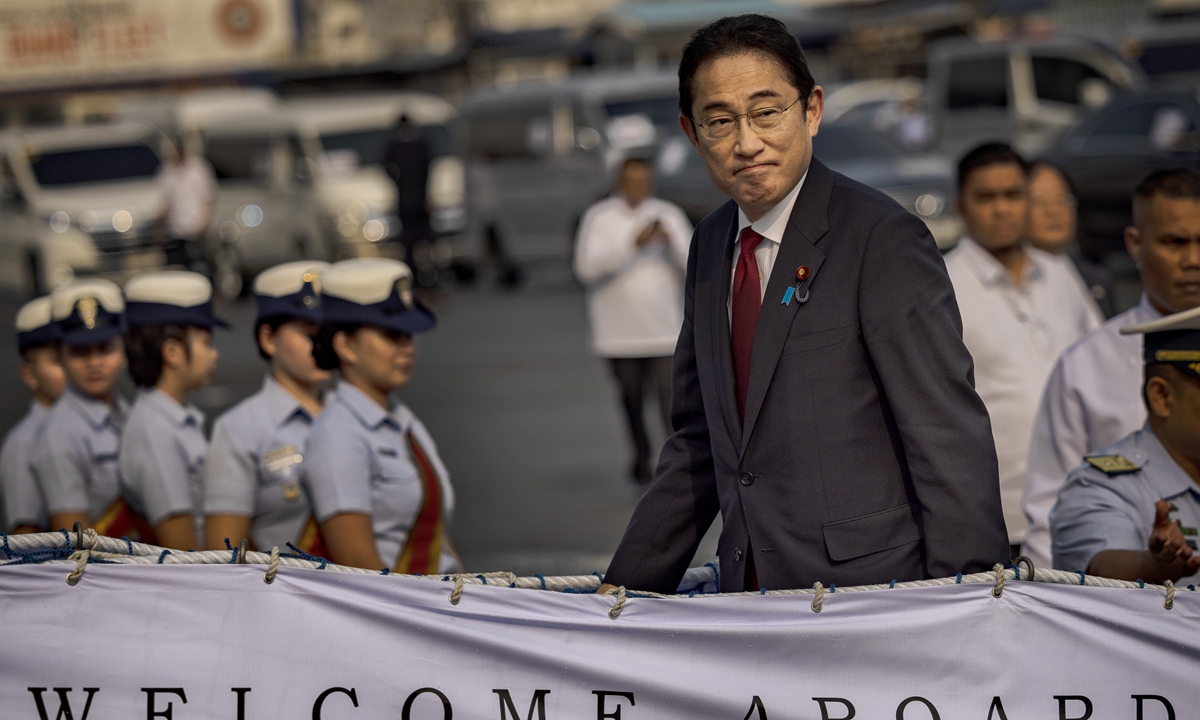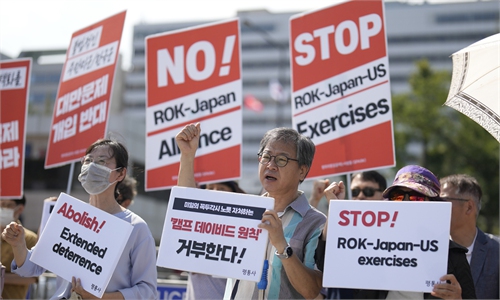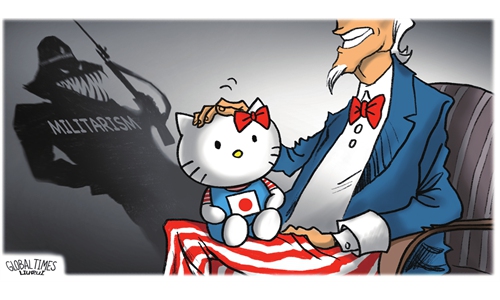Japan to expand security assistance framework to Vietnam, Djibouti, sparking concerns

Japan's Prime Minister Fumio Kishida boards the BRP Teresa Magbanua ship at the Philippine Coast Guard headquarters on November 4, 2023, in Manila, Philippines. Photo: VCG
Japan is considering providing defense equipment to Vietnam and Djibouti under a new security assistance framework after a similar move with the Philippines, Japanese media outlet NHK reported on Monday. This new framework of cooperation clearly targets China, but it will very likely end up as wishful thinking, experts noted on Tuesday.Through the Official Security Assistance (OSA) framework, Japan earlier agreed with the Philippines that Tokyo will provide Manila with surveillance radar systems. Vietnam and Djibouti are the next candidates to receive OSA from Japan during the fiscal year that begins in April 2024, according to NHK.
The OSA framework, officially implemented in April this year, is different from the Official Development Assistance (ODA) previously provided by Japan to developing countries for non-military purposes only. Although Japan claimed that the new framework is designed to provide defense equipment to "Japan's like-minded countries" as a way to "deepen security cooperation," its actions do not adhere to its claims.
The selection of candidates such as the Philippines and Vietnam in the South China Sea reveal Japan's real ambition - creating security threats against China, analysts noted.
In recent years, especially since current Japanese Prime Minister Fumio Kishida took office, Japan has been determined to antagonize China, Lü Chao, director of the Institute of US and East Asian Studies under Liaoning University, told the Global Times on Tuesday. "It is guided by the active promotion of the US' so-called Indo-Pacific Strategy, and was boosted after the Camp David summit between the US, Japan, and South Korea."
Lü said "China is clearly targeted as an enemy country in the framework."
The Japanese government has included 2 billion yen ($13 million) for the OSA framework in the budget for the fiscal year 2023, designating the Philippines, Malaysia, Bangladesh, and Fiji as candidate countries for implementation. The budget request for the fiscal year 2024 also includes 2.1 billion yen for the OSA.
"As China's relationships with ASEAN countries have developed rapidly in recent years, Japan stepped up looking for various excuses to create troubles for China," the expert noted. "But the plan is likely to end up as wishful thinking, as these small favors will not necessarily change the basic friendly relationship between these countries and China."
The countries involved will come to their own judgments, he said, mentioning that Japan's recent dumping of nuclear-contaminated wastewater has also sparked widespread opposition from Pacific countries, which will also affect cooperation between them and Japan.
The implementation of the OSA framework is another attempt from Japan to break through the restrictions on arms exports, and another manifestation of Japan's push for military normalization by breaking "Article 9 of the Constitution," observers noted.
"Japan wants to use the military power of the US to achieve its goal of becoming the dominant power in East Asia," Lü warned. "Japan's military expenditure has far exceeded the so-called defense scope and is continuously expanding, to which Asia-Pacific region should be vigilant about."


